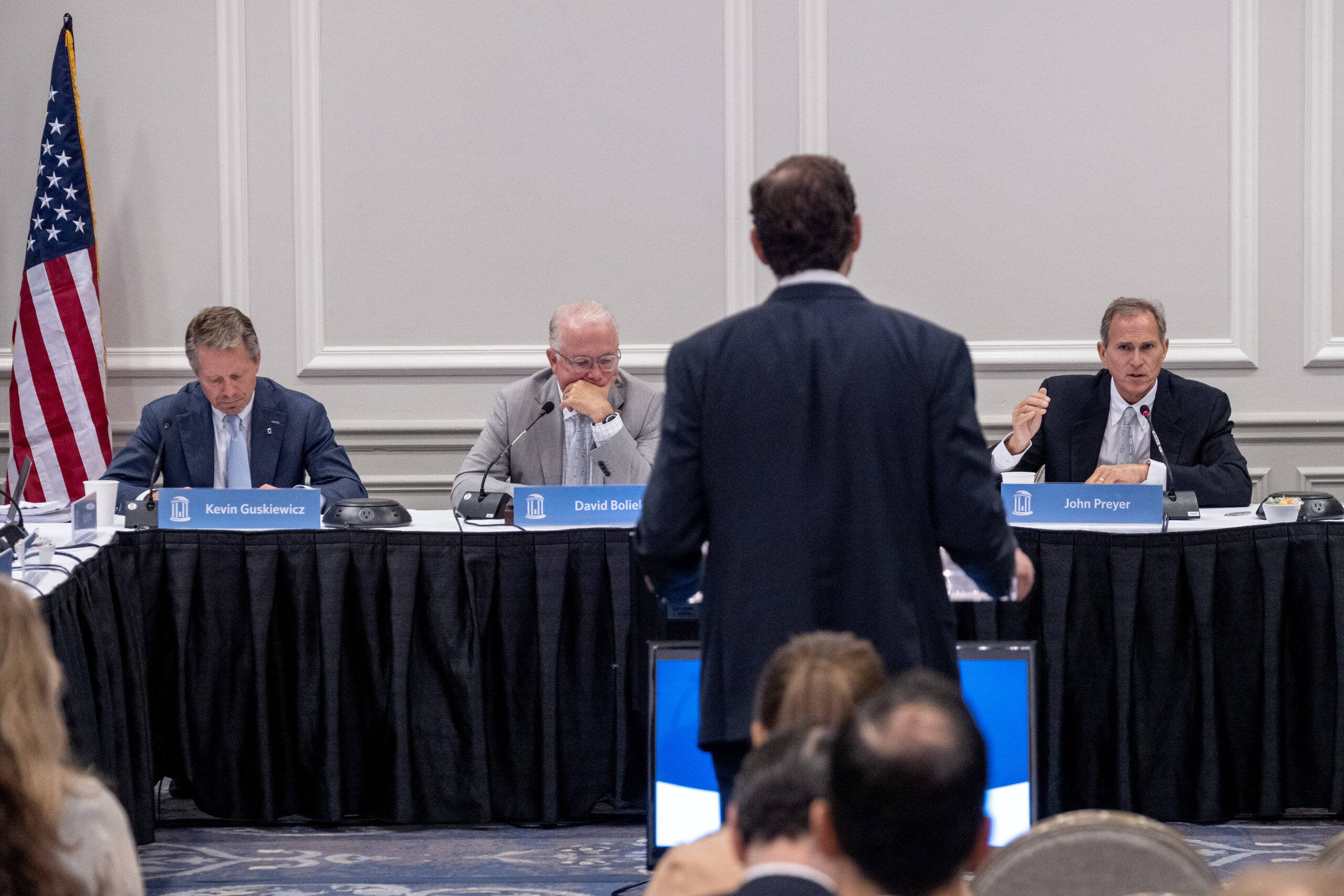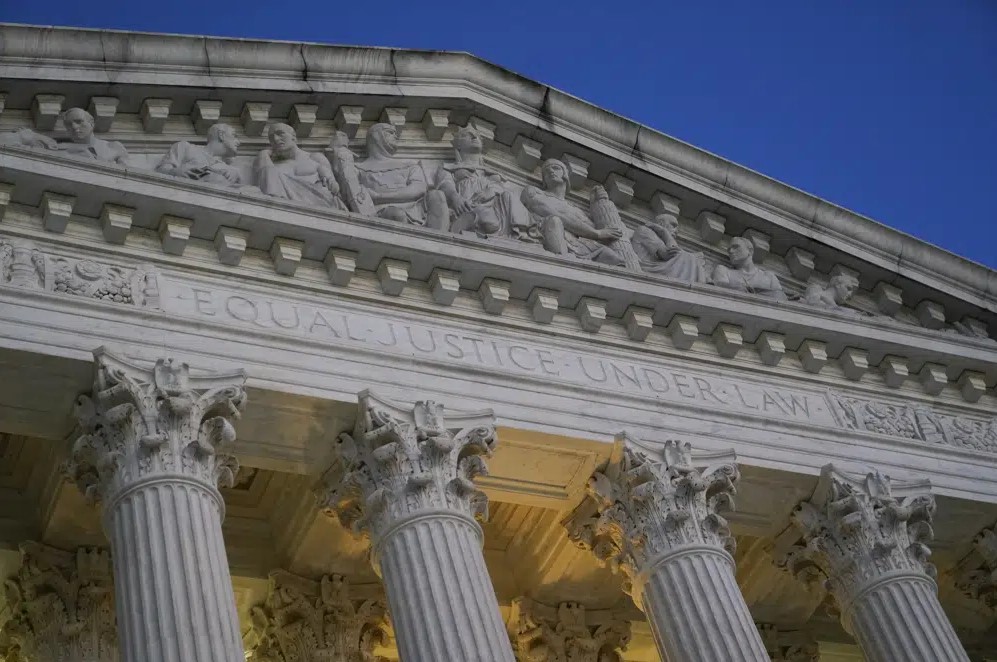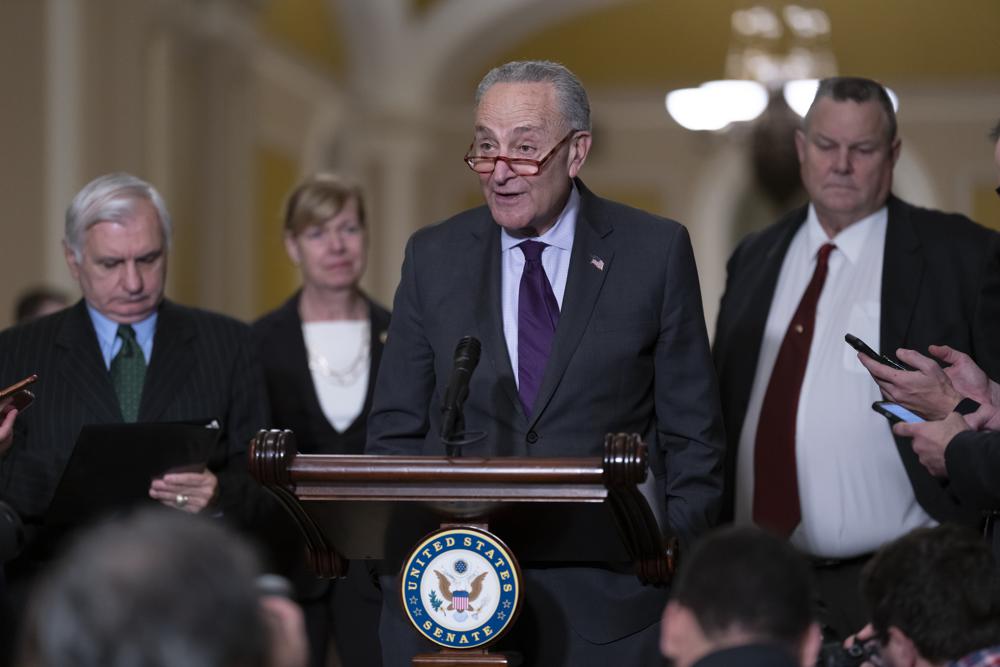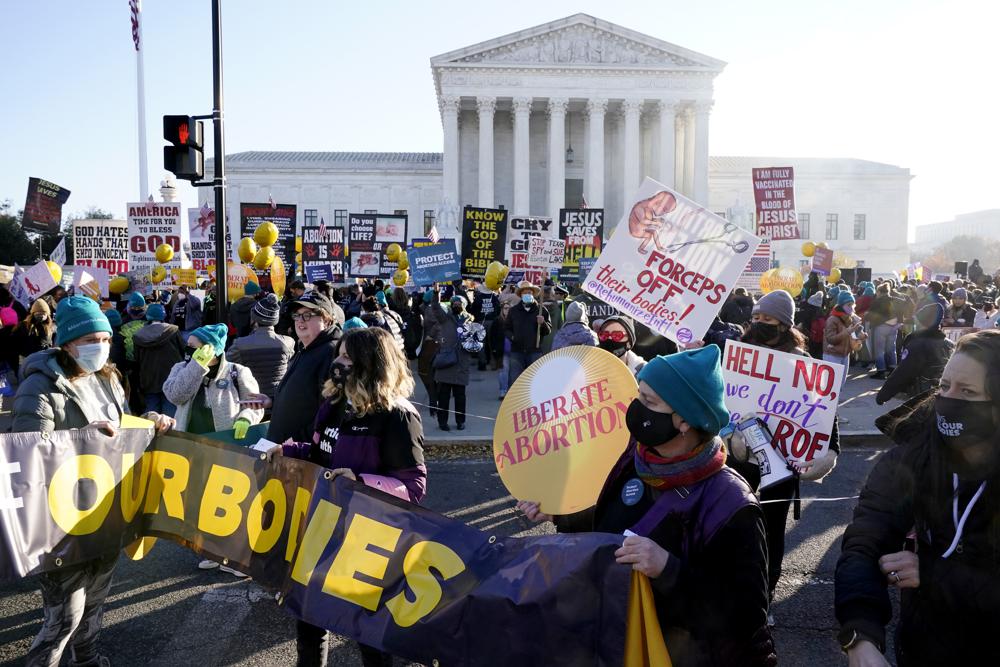On Monday, the U.S. Supreme Court decided not to take action – at least not right now – on the same-sex marriage issue. But that decision actually has major ramifications, nationwide and here in North Carolina, and advocates for same-sex marriage nationwide are rejoicing.
“I was shocked,” said Chapel Hill Mayor Mark Kleinschmidt Monday, “but then seconds later, just overjoyed.”
What the Court did on Monday was to deny cert – that is, to decline to review – five lower-court rulings on same-sex marriage. That means those lower-court rulings are allowed to stand. And each of those rulings struck down a different state’s ban on gay marriage – so by not acting on Monday, the Court effectively legalized same-sex marriage in five different states at once.
Those states are Utah, Oklahoma, Indiana, Wisconsin, and Virginia. The Court’s ruling (or non-ruling) Monday means that same-sex marriage is legal, right now, in all five states.
And that has significant implications for North Carolina. The Virginia ruling came down from the Fourth Circuit Court of Appeals, and North Carolina is in their jurisdiction – which means the Virginia ruling applies to North Carolina as well. There needs to be another court ruling to make that official – but based on the Fourth Circuit’s ruling, our ban on same-sex marriage will be struck down and same-sex marriage will be legal and recognized, perhaps even in a matter of days.
Listen to Mark Kleinschmidt’s conversation with WCHL’s Aaron Keck on Monday afternoon.
“I was as shocked as any Supreme Court watcher was,” says Kleinschmidt, who’s a constitutional attorney and a national advocate for same-sex marriage. Most legal experts assumed that the justices would accept the cases for review, in order to weigh in definitively on the matter. Earlier this summer, though, Justice Ruth Bader Ginsburg said the Court typically wouldn’t hear a case unless there were conflicting rulings from circuit courts – and in this case, every circuit court that’s ruled so far has ruled in favor of same-sex marriage.
There are several circuit courts that haven’t yet weighed in – including the Sixth Circuit, where judges in an oral argument earlier this year seemed more skeptical about the idea that same-sex marriage was constitutionally protected. Monday’s ruling (or non-ruling) doesn’t apply to the states under those courts’ jurisdiction – about 20 states in all. But it does apply to North Carolina, as well as numerous other states – inclding West Virginia, Maryland and South Carolina, which are also under the Fourth Circuit’s jurisdiction.
“There’s a whole lot of celebrating that’s going to go on in North Carolina…and it’s going to happen really big,” says Kleinschmidt. “While marriage is not available on this day at this hour in North Carolina for same-sex couples, it could happen as early as this week…
“Certainly there could be same-sex weddings on Halloween.”
The Fourth Circuit Court’s ruling in Virginia (in a case called Bostic v. Schaefer) doesn’t deal directly with North Carolina, so it will take an additional court ruling to overturn North Carolina’s same-sex marriage ban. But lower courts within the Fourth Circuit are legally bound by the circuit court’s rulings – and while the Bostic case only deals with Virginia’s law, the Fourth Circuit judges declared unequivocally that the “fundamental right to marry” extends to same-sex couples as well as opposite-sex couples.
Read the Fourth Circuit’s ruling in the Bostic case.
Based on that reasoning, it’s a virtual certainty that North Carolina’s ban on same-sex marriage will be overturned. The ACLU of North Carolina has filed a request seeking an immediate ruling to that effect from Chief U.S. District Judge William Osteen, and there are other cases in the legal system as well – including one that Kleinschmidt is working on himself.
“(And) fundamental rights don’t end with just marriage,” Kleinschmidt says, looking forward. “Hopefully we’ll see courts now being able to make sure people don’t get thrown out of their houses and fired from their jobs (for being gay).”
The Supreme Court’s decision not to decide means that the same-sex marriage issue is still not entirely resolved. Another circuit court could still rule the opposite way, and if it does, the Supreme Court may take up the question at a later date.
But for now, proponents of same-sex marriage – like Kleinschmidt – are ecstatic.
“Liberty rules,” he said Monday. “And so does love.”







Comments on Chapelboro are moderated according to our Community Guidelines